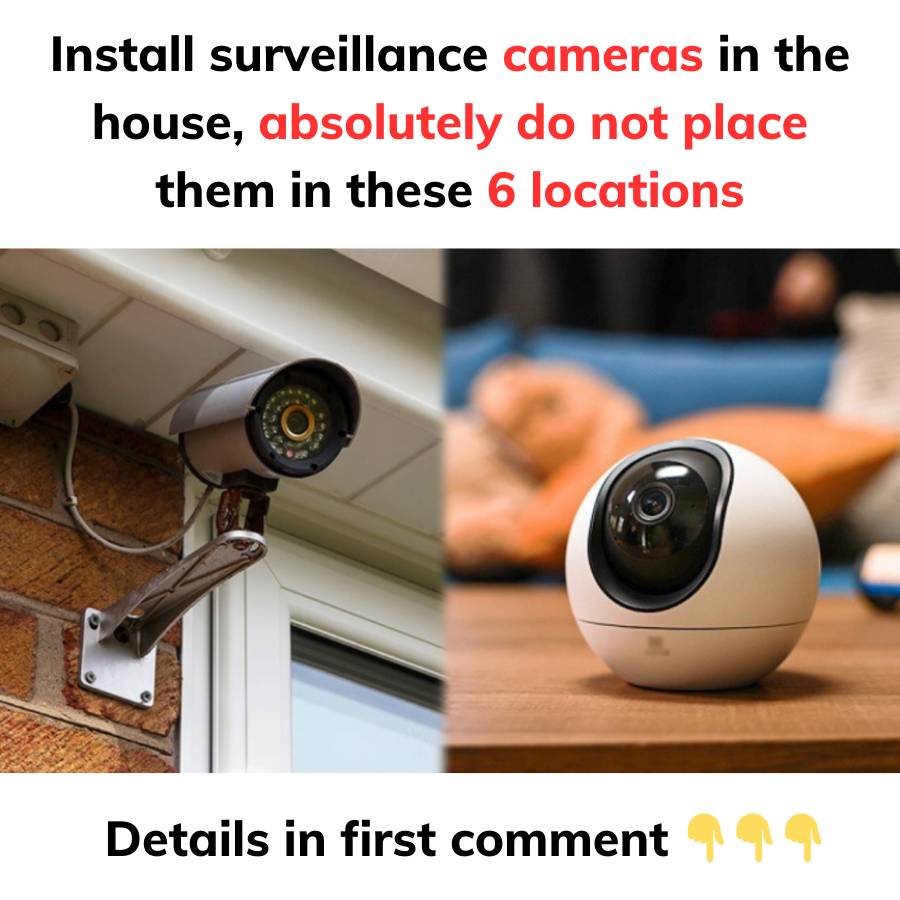
Surveillance cameras are important to help you ensure the security of your home. However, there are locations where you should avoid installing cameras to avoid affecting your privacy.
1. Locations that require privacy
Surveillance cameras are used to ensure safety and security and need to be on 24/7. You should avoid installing cameras in private locations such as bathrooms, dressing rooms, and bedrooms. These are places where personal activities take place. Installing cameras here will create an uncomfortable feeling and increase the risk of exposing private images if the surveillance camera is attacked by bad guys.
For these areas, to ensure safety and avoid bad guys breaking in, you can use motion sensor lights mounted in the door area instead.
2. Location is too high
Many people think that installing cameras in high positions will help create a good view. However, placing the camera too high is disadvantageous because the image recorded on the ground is not clear due to the distance being too far.
The camera should be installed at a height just above the door.
3. Hard-to-see locations
You may think that installing cameras in hard-to-see locations around the house is because thieves can take advantage of these locations to sneak into the house. However, most thieves enter the house through the easiest routes such as the front door, first-floor windows. Placing cameras facing these areas can help you identify intruders.
To ensure the safety of your family, you can arrange cameras around the house, including the main entrances to the house and hidden corners.
4. Behind windows
Outdoor cameras and indoor cameras are two different types. Of which, outdoor cameras are often more expensive because this type requires better weather resistance. Therefore, many families choose to install cameras indoors, behind windows and facing out to monitor the space outside the house. However, this is not really good. The glass can reflect sunlight, making the recorded camera image glare and unclear. In addition, the camera’s filming through a layer of glass also greatly affects the image quality. Dust on the glass door also reduces the camera’s ability to observe. The view from behind the window is also limited.
5. Pointing the camera at the neighbor’s house
It is not advisable to turn the camera to the neighbor’s house. This can even be considered a violation of privacy, personal secrets, and family secrets without the neighbor’s consent.
Article 21 of the 2013 Constitution clearly states that each person has the inviolable right to privacy, personal secrets, and family secrets. Article 38 of the 2015 Civil Code also reaffirms that these are inviolable rights and are protected by law. Anyone who collects, stores, uses, or publicizes private life, personal secrets, or family secrets must have the consent of that person or family.